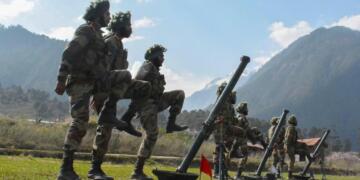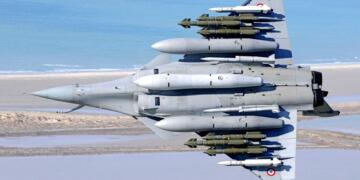The recent drone attack in Manipur, resulting in the death of a woman and injuries to several others, highlights the pressing need to address terrorism and insurgency in India’s northeastern states. This incident marks a dangerous escalation in the ongoing ethnic conflict between the Meitei and Kuki communities, underscoring the importance of a coordinated response to terrorism in the region.
Northeast India, a region with a complex mosaic of ethnic groups and communities, has long been plagued by insurgency and terrorism. The current conflict in Manipur, which erupted in May 2023, has seen significant violence and loss of life, with at least 200 fatalities reported so far. The recent use of drones by insurgents to drop explosive devices represents a new and alarming dimension to this violence.
The strategic use of technology in this conflict underscores a broader trend where traditional forms of insurgency are being supplemented with advanced tools. Drones, once the domain of state actors and sophisticated militaries, are now being adapted by non-state groups to conduct attacks. This development complicates the security landscape and poses significant challenges for both local and national security forces.
Addressing terrorism in the Northeast is crucial for several reasons. Firstly, the region’s stability is vital for national security. The northeastern states, with their proximity to international borders, play a key role in India’s strategic posture. Persistent violence and unrest can create vulnerabilities and undermine India’s security interests.
Secondly, terrorism and insurgency have a profound impact on civilian life and socio-economic development. The ongoing conflict exacerbates displacement, disrupts education, and hampers economic growth. Infrastructure development and investment are stymied in conflict zones, which perpetuates poverty and underdevelopment.
Furthermore, the rise in violence has a destabilizing effect on governance and law enforcement. When security forces are diverted to combat insurgency, other essential services and developmental activities suffer. This creates a vicious cycle where lack of development feeds further unrest.
Addressing terrorism in the Northeast requires a multifaceted approach. Effective counter-insurgency operations must be complemented by efforts to address the root causes of conflict, such as economic disparity, ethnic tensions, and political grievances. Building trust between communities and investing in infrastructure and education are essential for long-term peace and stability.
In conclusion, curbing terrorism in Northeast India is not only a matter of national security but also of ensuring the well-being and development of its people. A comprehensive and coordinated strategy is essential to break the cycle of violence and build a peaceful and prosperous future for the region.






























